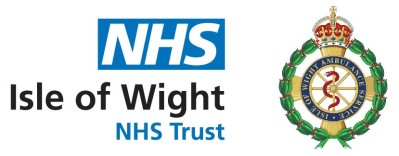Statement from our Chief Executive Officer about the Bribery Act 2010
In 2023, Isle of Wight Trust (IWT) formed a partnership with Portsmouth Hospitals University NHS Trust (PHU). This has allowed the formation of a new leadership model with a single team of executives for both trusts supported by a trust leadership team at IWT and PHU.
The Group Executive Team has agreed to produce a combined group statement on the Bribery Act 2010 on behalf of IWT and PHU.
The Bribery Act came into force on 1 July 2011. The purpose of the Act is to prevent bribery and corruption in both the public and private sectors.
Bribery can be defined as the offering; promising, giving, accepting, or soliciting of an advantage as an inducement for an action which is illegal or a breach of trust. The Act has six principles, one of which is that there is top level commitment in the organisation to prevent and detect bribery.
The Group Board of Directors is committed to this, with both PHU and IWT operating a zero-tolerance policy against fraud, bribery, and corruption.
Both PHU and IWT employ a fraud specialist to provide a comprehensive programme to tackle fraud, bribery, and corruption. The fraud specialist reports to the chief financial officer and the trusts’ audit committees.
It is essential that everyone working for, or on behalf of, both organisations is aware of the standards of behaviour expected of them. These standards are set out in the trust’s policies and procedures and reflect not only the law but the expectations of behaviour at both organisations.
As NHS organisations we follow good NHS business practice and have robust controls in place to prevent bribery. However, we cannot afford to be complacent, and it is important that all employees, contractors and agents comply with Trust policies and procedures, particularly with regard to procurement and sponsorship.
As chief executive of both PHU and IWT, on behalf of the organisations. I confirm our commitment to ensuring that all staff are aware of their responsibilities in relation to the prevention of bribery and corruption and that the risk of trust exposure to acts of bribery is mitigated.
We ask all who are involved with the work of both organisations, as employees, agents, trading partners, stakeholders and patients, to help us in our fight against fraud, bribery and corruption, and to contact us immediately. If you have any concerns or suspicions, contact Karen Travers, Fraud Specialist, in confidence via email: karen.travers@nhs.net or mobile: 07881 954819.
Penny Emerit, Chief Executive Officer
Portsmouth Hospitals University NHS Trust
Isle of Wight NHS Trust



